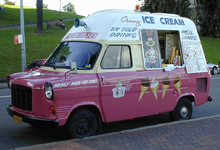Sunday, 15 August 2010
Saturday, 14 August 2010
"Why Freegan?"




Friday, 13 August 2010
Freeganism
Freeganism is essentially an anti-consumerist lifestyle whereby people employ alternative living strategies based on "limited participation in the conventional economy and minimal consumption of resources".
Freegans "embrace community, generosity, social concern, freedom, cooperation, and sharing in opposition to a society based on materialism, moral apathy, competition, conformity, and greed." The lifestyle involves salvaging discarded, unspoiled food from supermarket dumpsters, known as 'dumpster diving'. Freegans salvage the food for political reasons, rather than out of need.
The word "freegan" is a portmanteau of "free" and "vegan".Freeganism started in the mid 1960s, out of the antiglobalization and environmentalist movements. The movement also has elements of Diggers, an anarchist street theater group based in Haight-Ashbury in San Francisco in the 1960s, that gave away rescued food.
Wednesday, 11 August 2010
Ice Cream Vans

Eat Me Magazine
Eat Me Magazine brings to the table a fine blend of dazzling recipes, incisive reviews and charming articles. Food should never be boring."
Tuesday, 20 July 2010
Decisions decisions decisions.....
"When you look back there will be things you will regret.
You made the wrong decision.
Wrong.
You made the right decision.
Life is about decisions.
- Am I going to have the practical car or the fast car?
- Shall I go to college or get a job?
- Will I have wine, beer or water?


